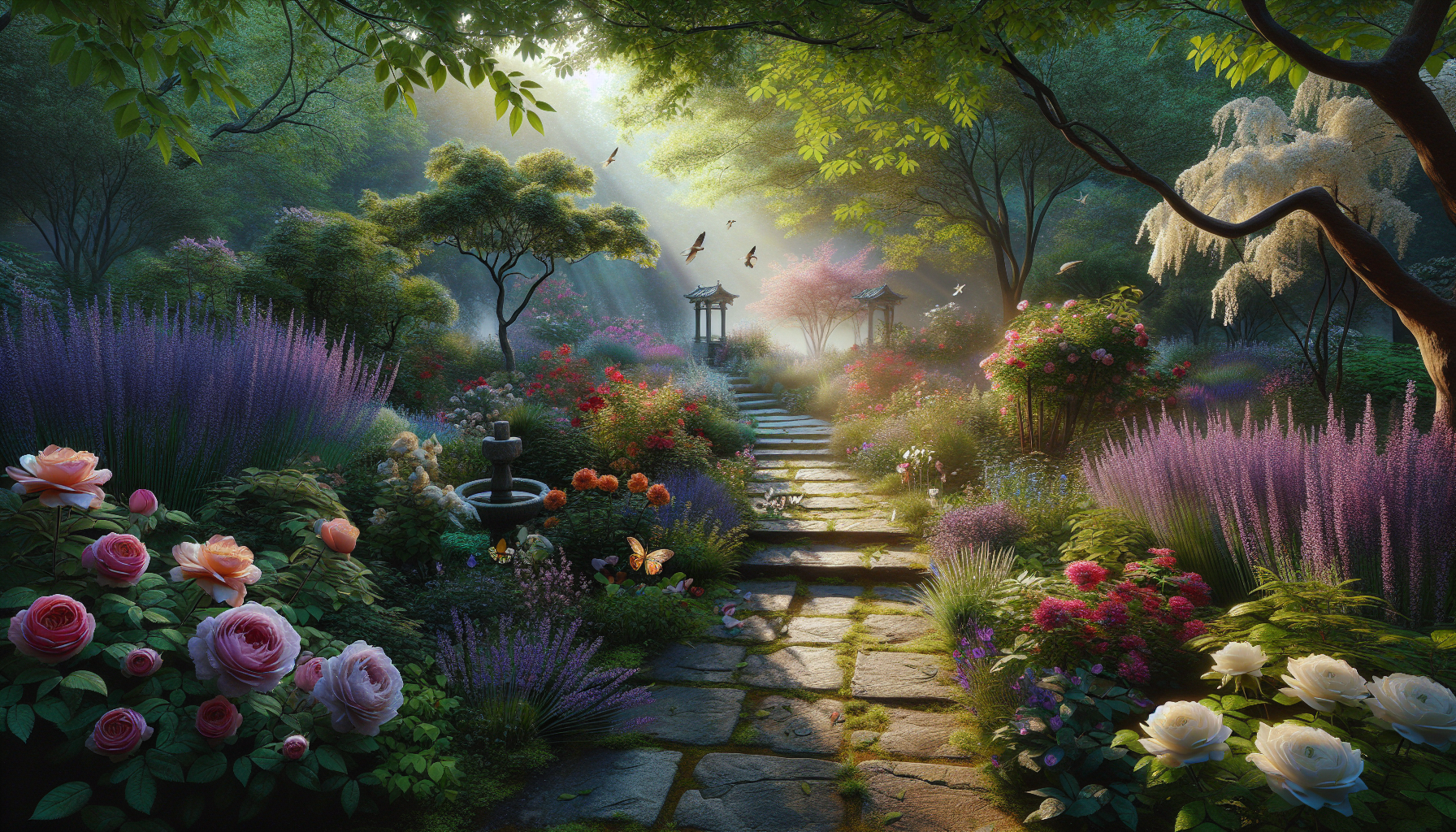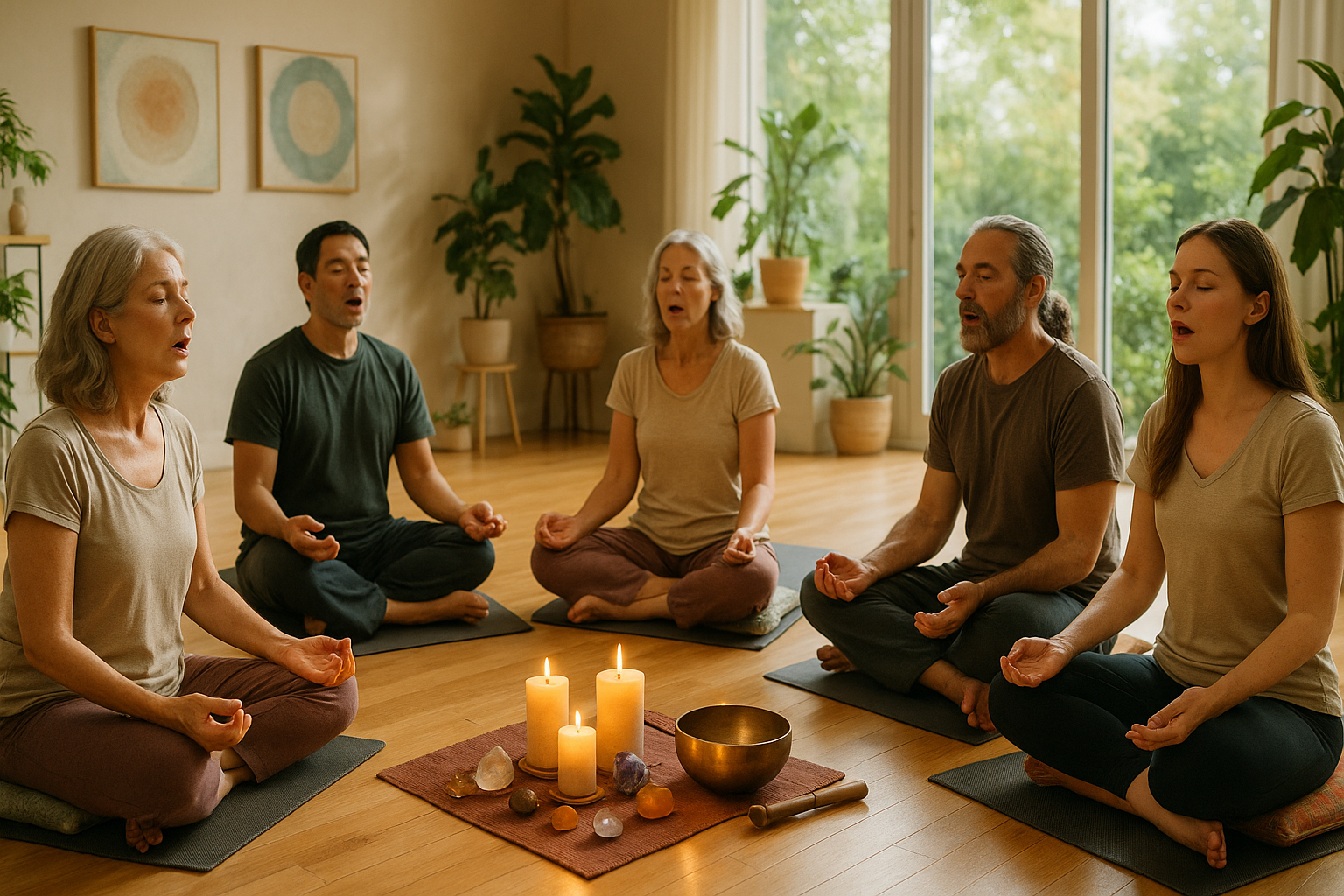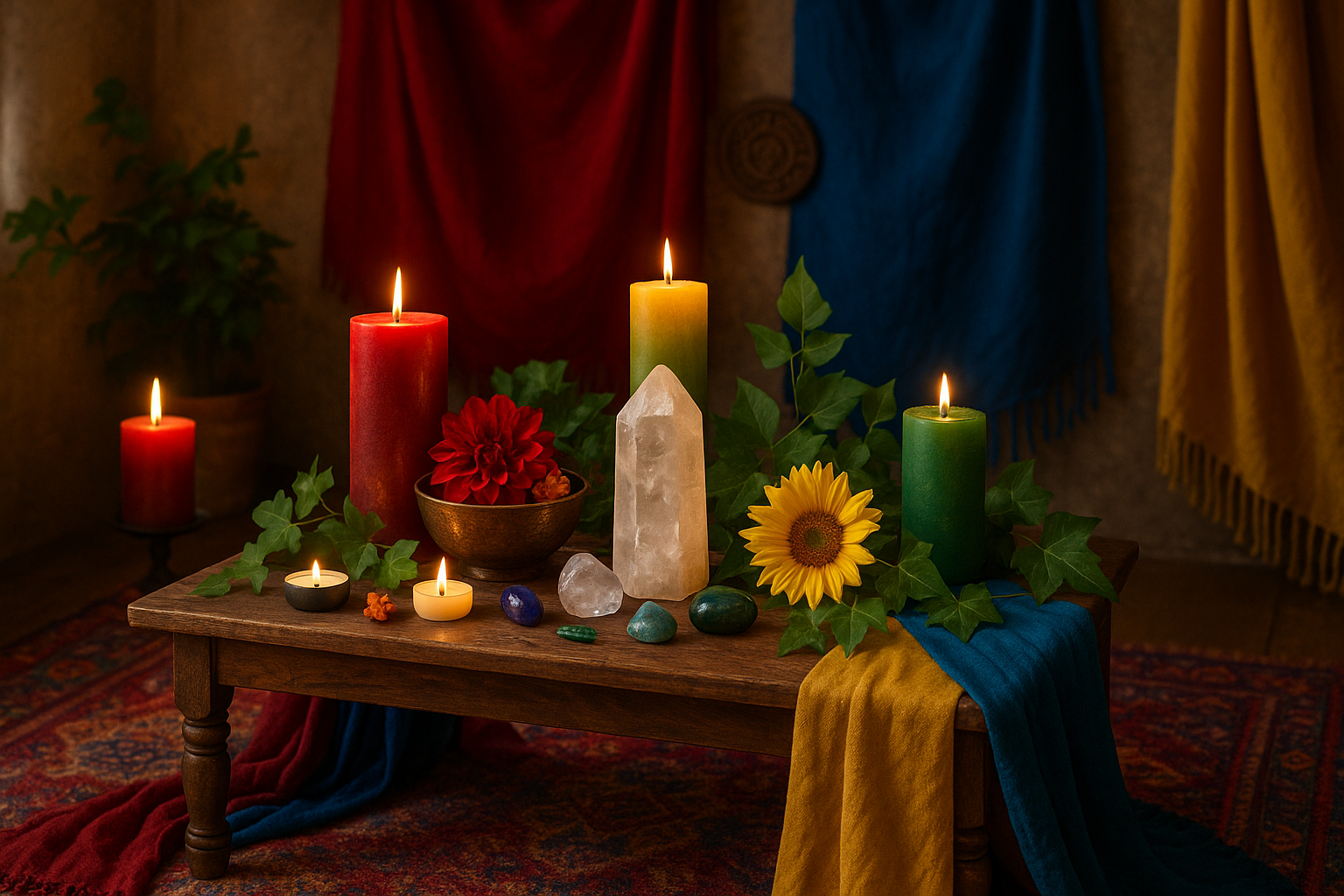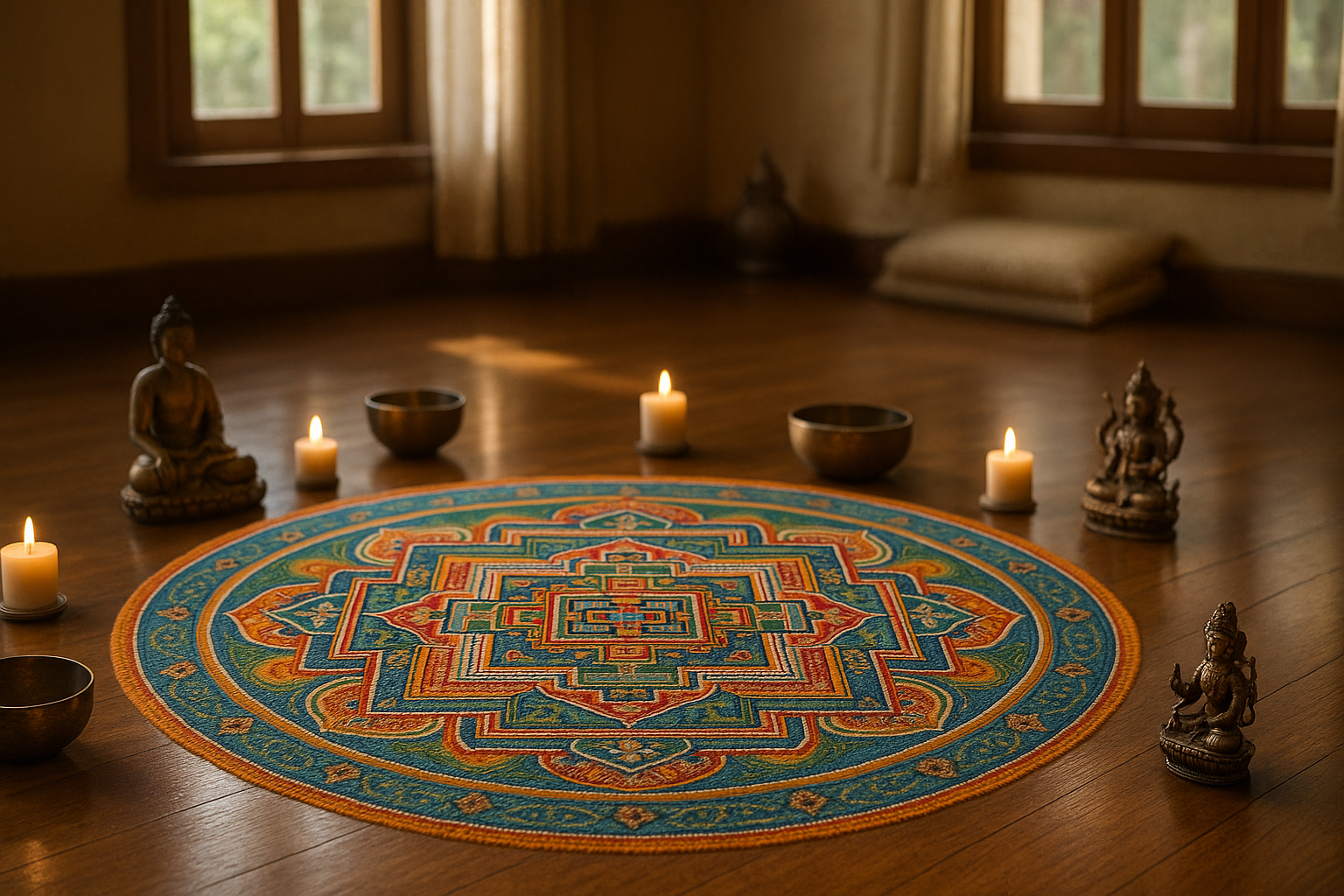In the hustle and bustle of modern life, where screens dominate our attention and the cacophony of city sounds fills our days, the quest for tranquility often feels like chasing a mirage. Yet, hidden within the natural world lies a timeless sanctuary that offers a balm for our weary souls: the fragrant garden. 🌿 This ancient refuge, rich with the scent of blooming flowers and aromatic herbs, beckons us to rediscover the profound healing power that nature has always held. As we embark on this journey into the world of fragrant gardens, we will explore how these verdant spaces can serve as a sanctuary for the senses, offering a unique blend of beauty, serenity, and rejuvenation.
Imagine stepping into a lush garden where the air is infused with the delicate fragrance of lavender, the invigorating zest of citrus blossoms, and the sweet allure of roses. Instantly, your senses awaken, and you are transported to a place of peace and serenity. This is not just a garden; it is a multisensory experience designed to engage your mind, body, and spirit. The power of scent to evoke memories and emotions is unparalleled, and in a fragrant garden, each breath is an invitation to a journey within. Here, we will delve into the science behind the healing effects of aroma on the human psyche, uncovering how these natural fragrances can reduce stress, enhance mood, and even improve cognitive function.
But the magic of fragrant gardens extends beyond their aromatic allure. These gardens are vibrant ecosystems, each plant contributing to a symphony of scents and sights that captivate the senses. We will explore the art of designing a fragrant garden, considering factors such as plant selection, seasonal blooms, and the harmonious interplay of colors and textures. Whether you have a sprawling backyard or a modest balcony, creating a fragrant garden can transform any space into a personal oasis of calm and inspiration. You will discover practical tips and creative ideas for incorporating fragrant plants into your own garden, making this timeless tradition accessible to all.
Furthermore, fragrant gardens offer more than just sensory delight—they provide a space for mindfulness and reflection. In a world that demands constant attention and productivity, the garden invites us to slow down and reconnect with ourselves and the natural world. As we wander through these serene spaces, we find moments of introspection and clarity, fostering a sense of balance and well-being. We will discuss the therapeutic benefits of spending time in nature, drawing from the principles of horticultural therapy and mindfulness practices. By integrating these elements into our daily lives, we can cultivate a deeper sense of peace and fulfillment.
As we venture deeper into the enchanting realm of fragrant gardens, prepare to be inspired by stories of historical gardens and the cultural significance of scent in various traditions. From the ancient Persian paradise gardens to the contemplative Japanese tea gardens, we will uncover how different cultures have harnessed the power of fragrant plants to create spaces of healing and meditation. Through these narratives, we gain a richer understanding of the universal human desire to connect with nature and find solace in its beauty.
Join us on this aromatic journey and discover how fragrant gardens can transform not only the spaces we inhabit but also our very selves. As we embrace the healing power of nature’s bouquet, we open ourselves to a world of sensory wonder, inviting tranquility, joy, and rejuvenation into our lives. 🌸
The Therapeutic Benefits of Fragrant Gardens
Imagine stepping into a garden where the air is perfumed with the intoxicating scents of blooming flowers and aromatic herbs. Fragrant gardens offer more than just visual beauty; they serve as sanctuaries for the senses, providing a plethora of therapeutic benefits. These gardens are meticulously designed to stimulate the olfactory senses, promoting relaxation, reducing stress, and enhancing overall well-being.
The sense of smell is deeply connected to the limbic system, which is the part of the brain responsible for emotions and memory. When we inhale the aroma of flowers like lavender, jasmine, or roses, our brain releases neurotransmitters that can enhance mood, alleviate anxiety, and even improve cognitive function. Many studies have shown that certain scents can lower cortisol levels, the hormone associated with stress, thus creating a serene environment that promotes mental clarity and peace.
Additionally, spending time in a fragrant garden can encourage mindfulness and present-moment awareness. By focusing on the diverse scents around you, the mind is anchored to the present, which is a key element of mindfulness practice. This not only reduces mental clutter but also promotes a sense of gratitude and appreciation for nature’s simple pleasures. As we immerse ourselves in the garden’s aromatic atmosphere, we engage in a form of meditation that refreshes the mind and rejuvenates the spirit.
Essential Oils: The Concentrated Essence of Gardens
Essential oils are the distilled essence of fragrant gardens, capturing the plant’s aromatic compounds. These oils have been used for centuries in aromatherapy, a practice that leverages scent to improve mental and physical health. Different essential oils have unique properties; for instance, lavender is renowned for its calming effects, while peppermint is invigorating and can enhance concentration. The garden’s scent profile can be designed to target specific needs, whether it’s promoting relaxation or boosting energy levels.
The use of essential oils is versatile. They can be diffused into the air, applied topically (with a carrier oil), or used in baths to create a sensory experience that mirrors the tranquility of a fragrant garden. These oils can also be integrated into daily routines, such as in skincare products or household cleaning agents, to continually benefit from their therapeutic properties.
Furthermore, the cultivation of plants for essential oils encourages a sustainable relationship with nature. By growing plants for their aromatic benefits, gardeners can reduce reliance on synthetic fragrances, which often contain harmful chemicals. This practice not only supports environmental health but also fosters a deeper connection to the natural world.
Designing Your Own Fragrant Garden
Creating a fragrant garden is both an art and a science. It requires an understanding of plant growth habits, bloom times, and scent profiles to orchestrate a symphony of aromas that changes with the seasons. The design should take into account factors such as climate, soil type, and sunlight availability to ensure that the selected plants thrive and produce their desired scents.
A well-designed fragrant garden typically includes a mix of perennials and annuals to provide continuous blooms and scents throughout the year. Key fragrant plants to consider include:
- Lavender: Known for its calming scent, lavender is ideal for promoting relaxation and sleep.
- Roses: With a classic and romantic fragrance, roses add elegance and a sense of tranquility.
- Jasmine: This sweet, exotic scent is often used in perfumes and is known to boost mood and reduce stress.
- Mint: Fresh and invigorating, mint can be used to energize and refresh the senses.
Beyond plant selection, consider the layout of your garden. Paths and seating areas should invite visitors to linger and immerse themselves in the aromatic environment. Water features can add a soothing auditory element, enhancing the sensory experience. The incorporation of garden art and lighting can further create a magical atmosphere, making the garden a true retreat for relaxation and reflection.
It’s also crucial to incorporate sustainability into your garden design. Using organic gardening practices, such as composting and natural pest control, can protect the health of your plants and the surrounding ecosystem. Additionally, choosing native plants can support local biodiversity and reduce water consumption.
Examples of Fragrant Garden Designs
| Garden Style | Key Features | Ideal Plants |
|---|---|---|
| English Cottage Garden | A mix of colorful blooms and herbs, informal pathways | Lavender, roses, thyme |
| Japanese Zen Garden | Simplicity, water features, minimalist design | Jasmine, gardenia, pine |
| Mediterranean Garden | Drought-resistant plants, terracotta pots, gravel paths | Lavender, rosemary, sage |
Check out this video on designing a fragrant garden: “Creating a Fragrant Oasis” by Gardening Channel. It offers practical tips and visual inspiration for transforming your outdoor space into a sanctuary for the senses.
The Role of Fragrance in Ecotherapy
Ecotherapy, also known as nature therapy, is an emerging field that explores the therapeutic effects of nature on human health. Within this discipline, fragrant gardens play a pivotal role. The practice of ecotherapy involves activities that reconnect individuals with nature, thereby enhancing mental and physical health. This connection can be as simple as spending time in a fragrant garden, where the scents of flowers and herbs stimulate the senses and promote relaxation.
Fragrant gardens provide a unique form of ecotherapy by engaging the olfactory senses, which can be particularly beneficial for individuals with sensory processing disorders or those recovering from trauma. The sensory-rich environment encourages engagement with nature in a gentle, non-invasive manner, facilitating healing and personal growth.
Furthermore, ecotherapy sessions in fragrant gardens can be tailored to address specific therapeutic goals. For instance, guided meditation sessions among blooming lavender plants can enhance relaxation and mindfulness, while garden walks can improve physical fitness and reduce symptoms of depression. The holistic nature of ecotherapy ensures that individuals experience comprehensive benefits that encompass emotional, mental, and physical well-being.
Incorporating Fragrant Gardens into Daily Life
Integrating the principles of fragrant gardens into daily life doesn’t necessarily require a large outdoor space. Small changes can create a significant impact, whether it’s through a windowsill herb garden, the use of essential oils in your home, or visiting local botanical gardens.
For urban dwellers, balcony gardens can offer a slice of nature’s tranquility. Potting fragrant herbs like basil, thyme, and mint can provide a sensory escape amidst the city’s hustle and bustle. Additionally, attending community garden events can foster social connections and allow individuals to enjoy the shared experience of gardening’s therapeutic benefits.
For further reading on the transformative effects of ecotherapy and fragrant gardens, check out this article: “The Healing Power of Nature: How Ecotherapy Enhances Well-being”. This resource delves deeper into the scientific research supporting the mental health benefits of nature interaction.

Conclusion
Conclusion: Discover the Healing Power of Fragrant Gardens: A Sanctuary for the Senses
In conclusion, the exploration of fragrant gardens reveals a world where nature and wellness converge, creating sanctuaries that offer much-needed respite from the fast-paced modern world. Throughout this article, we’ve delved into the myriad benefits these gardens provide, from their historical significance and cultural impact to their scientifically proven therapeutic effects on mental and physical health.
Fragrant gardens have been cherished across cultures and centuries, acting as vital spaces for reflection, meditation, and healing. These gardens, rich with aromatic plants like lavender, jasmine, and rosemary, not only captivate our senses but also engage our emotions, reduce stress, and enhance our overall well-being. The scents of these plants have been shown to improve mood, boost cognitive performance, and even aid in sleep, demonstrating their profound impact on both our physical and mental states.
Moreover, the design of a fragrant garden itself is an art form that requires careful planning and a deep understanding of plant characteristics. The placement of plants, the timing of their blooms, and the combination of scents are all meticulously curated to create a harmonious and therapeutic environment. This intentional design further underscores the power of these spaces to foster tranquility and reflection, serving as a personal retreat for many.
Fragrant gardens also play a crucial role in biodiversity and environmental conservation. By cultivating native plants and creating habitats for pollinators like bees and butterflies, these gardens contribute to ecological balance and sustainability. This aspect not only enhances the beauty and functionality of the gardens but also instills a sense of responsibility and connection to the natural world in those who tend to them.
The sensory experience provided by fragrant gardens is unmatched, engaging sight, smell, and touch to create a multisensory environment that encourages mindfulness and presence. This connection with nature and the sensory engagement it provides is vital in our increasingly digital and disconnected lives. By spending time in these gardens, we can cultivate a deeper appreciation for the natural world and the simple joys it offers.
As we have discussed, creating your own fragrant garden can be an incredibly rewarding endeavor. Whether you have a sprawling backyard or a small balcony, the principles of fragrance, design, and care can be applied to create a personal sanctuary that reflects your tastes and needs. By doing so, you not only enhance your living space but also invest in your health and happiness.
In reinforcing the importance of fragrant gardens, we recognize them as more than just beautiful spaces; they are essential tools for holistic health and well-being. As stress and anxiety continue to rise in our society, these gardens offer a natural remedy that is accessible, effective, and sustainable. They remind us of the power of nature to heal and rejuvenate, encouraging us to pause, breathe, and reconnect with the world around us.
I invite you to explore this healing power in your own life. Consider visiting a local botanical garden, starting your own fragrant garden, or simply bringing a few aromatic plants into your home. Experience firsthand the peace and joy these gardens can bring, and share your experiences with others. 🌿
If you found this article insightful, please consider sharing it with friends and family who might also benefit from the calming effects of a fragrant garden. Your comments and stories are welcome; we’d love to hear how nature has impacted your life and well-being. Let’s continue this conversation and inspire others to discover the sanctuary that fragrant gardens offer.
For further reading and resources on creating your own fragrant garden, visit Royal Horticultural Society or National Gardening Association. These sites provide invaluable guidance and inspiration for gardeners of all levels.
Thank you for joining us on this journey into the fragrant world of healing gardens. May your path be filled with the beauty and peace that these natural sanctuaries provide. 🌸
Toni Santos is a visual storyteller and sensory artisan whose work explores the ancient aesthetics of the senses—how early cultures designed their environments not just for function, but for emotional, spiritual, and sensory harmony. Through thoughtful visual interpretations, Toni revives a world where every texture, scent, color, and sound was part of a deeper design for inner balance.
Guided by a passion for the subtle intelligence of ancient spaces—from meditative gardens to sacred interiors—Toni’s creations reflect the intentional artistry once used to align body, spirit, and surroundings. Whether studying the calming patterns of Mesopotamian textiles or the acoustic geometry of forgotten sanctuaries, his work invites modern audiences to rediscover the sensory wisdom of the past.
With roots in handcrafted design and symbolic research, Toni brings together material culture, ritual aesthetics, and environmental intuition. His art does more than depict—it restores a dialogue between the senses and the soul, rooted in time-tested principles of well-being.
As the guiding force behind Vizovex, Toni shares curated visuals, reflective essays, and timeless design stories that invite others to reconnect with the aesthetic languages of ancient harmony.
His work is a tribute to:
The sensory intelligence of ancestral environments
The use of beauty as a tool for spiritual and emotional balance
The ancient belief in harmony between people, nature, and space
Whether you’re a designer, a historian, or a seeker of inner stillness, Toni welcomes you into a world where the senses are sacred, and where ancient beauty whispers through space, rhythm, and form—one texture, one echo, one breath at a time.





